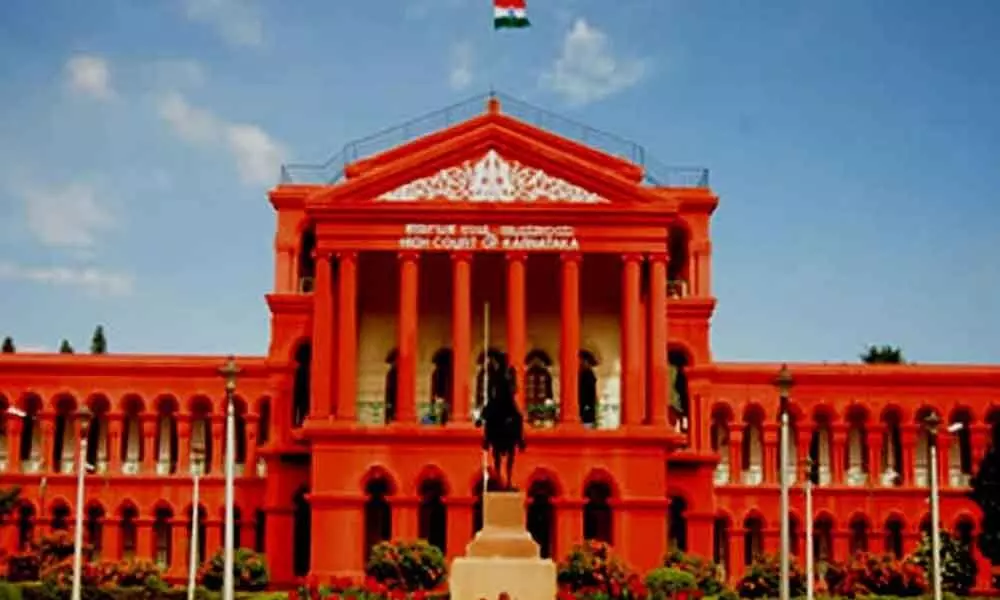Live
- Parents, teachers urged to let children grow freely
- Should State govt crack its whip on Endowment Department's functioning?
- Temple affairs a big task for EOs while few enjoy H.O. cushy stints
- RTA flounders on despatch of documents to motorists in city
- Police destroy ganja plantation
- UBI gesture to 3 welfare hostels
- Overwhelming response to Vijayawada Marathon
- Public Garden stepwell rots in apathy, walkers raise a stink
- Dinakar to send report to CM for justice to victims
- GHMC wakes up from slumber, out to tame stray dog menace
Just In
The Karnataka High Court Refused To Dismiss The Charges Against The Man's Case Of Marital Rape


Karnataka High Court (File/Photo)
- Rhe Karnataka high court declined to dismiss rape charges brought by a trial court against a man for sexually assaulting his wife
- Marriage does not provide any particular male privilege or a permission to unleash a "brutal beast" on the wife
On Wednesday, the Karnataka high court declined to dismiss rape charges brought by a trial court against a man for sexually assaulting his wife, finding that marriage does not provide any particular male privilege or a permission to unleash a "brutal beast" on the wife, reported Hindustan Times.
Justice M Nagaprasanna said in his decision rejecting the husband's argument that he could not be convicted for marital rape under the Indian Penal Code (IPC) that marriage does not bestow, cannot confer, and should not be perceived to confer any unique male privilege or a licence for releasing a vicious beast, in my opinion. If it is punishable by a man, it should be punishable by a man, even if the man is a spouse.
The bench stated that an argument like this, in their opinion, cannot be accepted. It strongly gave the message that a man is a man; an act is an act; rape is rape, whether committed by a man the "husband" on a woman the "wife."
In March 2017, the woman charged her husband of sodomy, extreme sexual harassment, domestic abuse, and inflicting distress to her 9-year-old daughter. The police included section 376 of the Indian Penal Code, which deals with rape penalty, as well as sections 5 (m) and (l) and section 6 of the Protection of Children from Sexual Offences Act, which deal with repeated penetrative sexual assault.
The husband filed an appealed against the subordinate court's judgement after the trial court framed allegations of rape, cruelty by husband, and criminal intimidation.
On the grounds that section 375 does not criminalise intercourse between a man and his wife, even if it is forced, Justice Nagaprasanna denied the man's request to dismiss the rape allegations.
The court did emphasise, while, that it was not debating whether marital rape should be recognised as a crime or whether the exception should be removed by the legislature.
The court noted that the charge sheet filed by the police following the investigation also portrays graphic information of accused No 1's demonic lust, who has had unnatural sex; every time has sexual intercourse torturing or mistreating the wife, or threatening to beat the daughter.
According to the bench, the sexual assault has serious effects for a wife's mental health. It went on to say that such acts have psychological and physiological consequences for women, and that they "scar the souls of the spouses."

© 2024 Hyderabad Media House Limited/The Hans India. All rights reserved. Powered by hocalwire.com






